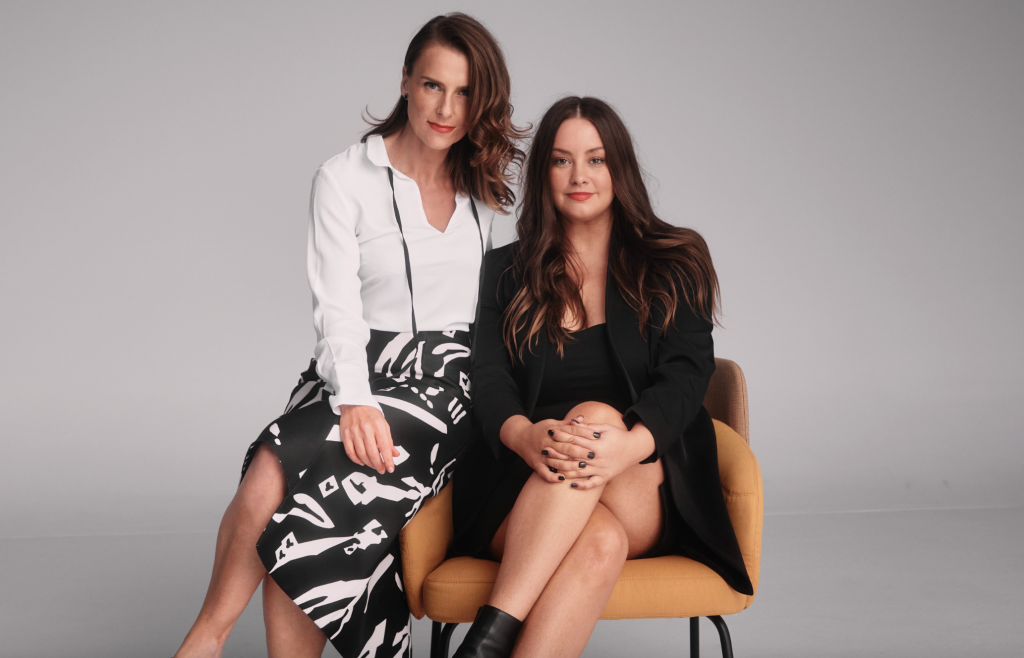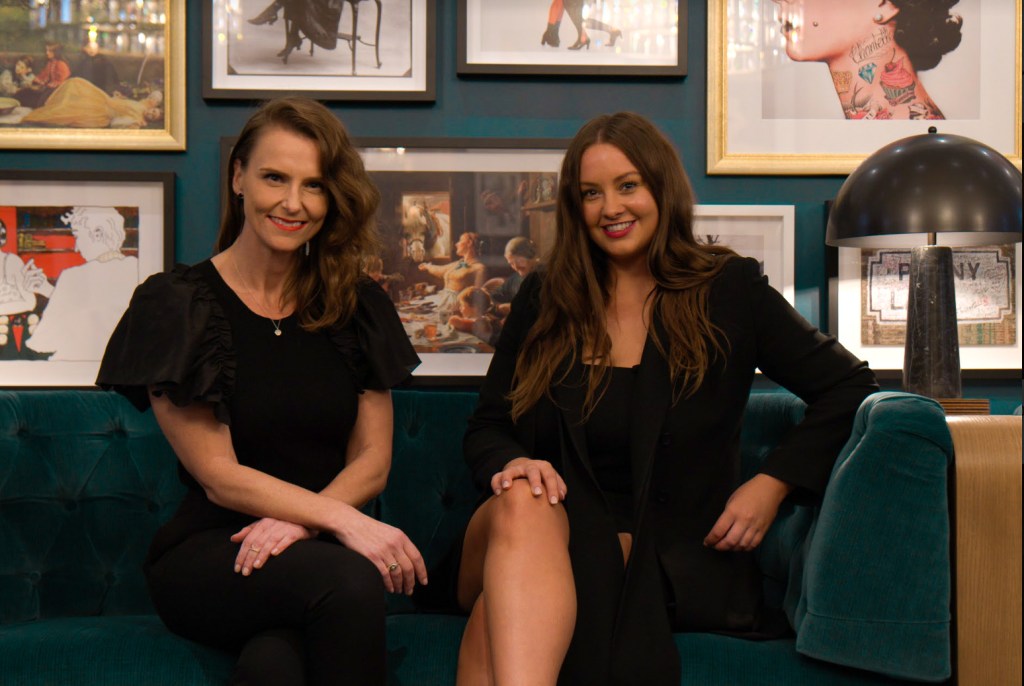Women Making Waves is using NFTs to fund law reform in areas that are adversely impacting women.

Many people took up a new hobby or skill during the pandemic, such as baking sourdough or learning a new musical instrument. But Jessica Wilson and her business partner, Hayley Evans – who met as “single buddies” during one of NSW’s lockdowns – went a step further, building Web3 business Women Making Waves, which uses non-fungible-tokens (NFTs) to fund law reform.
It sounds like a complicated business proposition, but Wilson insists at its core, it’s actually quite simple. A community of like-minded people are brought together through WMW when they buy a digital NFT artwork. Wilson describes the model as somewhat of a digital membership: half of the fee funds the work of WMW’s law reform experts – such as Walkley Award winning journalist and #LetHerSpeak and #LetUsSpeak campaign creator, Nina Funnell, who has worked to reform at least five outdated laws. The remainder of the fee goes towards building an online community and resources around issues impacting women.
Currently WMW is investing in law reform areas in Australia and the United State, such as statute of limitations periods around sexual assault cases and laws around a businesses’ ability to sue investors.
WMW is not Wilson’s first business. She founded retail tech company Stashd, which was scaled to 150 countries and saw her as a grand finalist on China’s version of Shark Tank, airing to 15 million people per episode. Wilson was named by Forbes as one of 1,000 under the age of 30 to change the world in the next 50 years.
Wilson knew exactly the type of business she wanted to create after a sexual assault in a corporate setting left her wanting meaningful law reform to protect women. You can see Wilson speak of her experience here.
“The most common feedback I had was ‘we believe what you’re saying – but it’s not about the truth, it’s about the law and how the law is structured’,” Wilson says.
How to turn the mission into a business
Understanding the type of business you want to build is one thing, but creating the right business model is another thing altogether. Wilson says her research showed that rolling out a not-for-profit model would mean that the majority of her time would be spent fundraising, rather than focusing on the important law reform work she was passionate about. That is when she began researching Web3 and NFTs.
“We literally just ate good food, drank wine and sent each other dog memes. We didn’t talk about business for three months – we just kept each other sane – and then we started talking a bit about what we did in the outside world.”
Women Making Waves co-founder and CEO Jessica Wilson
During lockdown, Wilson’s real estate agent wanted to introduce her to another woman who was moving into her apartment building so they could become “single buddies” under the state government regulations at the time.
“Haley, who is now my co-founder, became my ‘single buddy’ through lockdown. We literally just ate good food, drank wine and sent each other dog memes. We didn’t talk about business for three months – we just kept each other sane – and then we started talking a bit about what we did in the outside world.”
As it turned out, Evans had built and scaled the substantial tech investment portfolio of the Tavistock Group and sat on the board of YPO impact council. Soon the pair’s discussions led to business and purpose, and eventually to Web3 and NFTs, Wilson says.
“We see what we’re doing as a really innovative way to engage a community who care about what we care about, whether that’s from a corporate perspective or an individual’s perspective, and to have a real impact.”
So far Wilson says WMW has identified two very different types of members: Web3 natives who already buy and own multiple NFTs and people who have never bought a NFT but are passionate about the WMW’s vision.
“I am really proud of how we have built this. A lot of people when it comes to Web3, they say: ‘NFTs sound daunting. I don’t want to buy crypto, I don’t know how to set up a crypto wallet, etcetera’,” she says. “But we have partnered with a company called Paper XYZ and essentially people can buy and obtain an NFT with a few clicks and an email address and credit card. People who have never had an NFT before are becoming the majority of our holders. ”
In late 2022, WMW launched a campaign on LinkedIn called “I took the pledge”, in which it invited VCs and CEOs to pledge their support for women’s rights.
“The way we structured it was one VC tagged the next and it rolled out on LinkedIn – somewhat like the ice bucket challenge.
“We started off with Blackbird and there was AirTree and Square Peg and it went a little bit more viral than what we had anticipated. We had a business posting every 10 minutes! So, we started off with the corporates and the VCs and now we are opening it up to the public too – taking the pledge to support women’s rights.”

Part of WMW’s role is to partner with world leaders and charity organisations, such as Deepak Chopra’s The Chopra Foundation and UN Women Australia, to create recurring revenue streams for NFPs as well as bonus content for WMW members. It has also partnered with crypto philanthropy platform, The Giving Block, to launch the world’s first Women’s Rights Law Reform Index Fund. The fund curates law reform experts, such as Funnell’s #LetHerSpeak, Equal Rights Advocates, The Chopra Foundation and 18 By Vote.
Following the success of its #itookthepledge LinkedIn campaign, WMW has launched a new corporate membership called “Swell Club”. Aimed at corporate leaders and team members, member will have access to exclusive digital content and monthly co-hosted events around important issues impacting women, the first of which will be co-hosted by Google at Google’s headquarters in Sydney.
“Accumulatively, the law reform experts we work with have changed more than 40 laws. That’s what we want to see more of and that’s why we are doing what we are doing.”